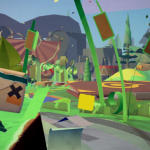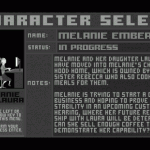When Games Matter is a weekly exploration by Drew Dixon of meaningful moments in games. Operating under the assumption that games do in fact matter, Drew seeks to highlight those moments that have much to say to say about who we are and the world we live in.
SPOILER ALERT: read no further if you have not played the original Portal and intend to do so.
You wake up in a test chamber. Everything around you looks clean, the lines and edges of the objects around you are well-defined. You are contained in a very small space. You quickly realize you can move freely about this space but in and of yourself you cannot progress any further. An automated voice reports that a portal will be opening in five, four, three, two, one. The portal opens. You exit the room because you are allowed to.
This is how Portal begins and continues. You go from point A to point B because a voice tells you to. There is nowhere else to go. You are not in control. The environments of the various tests you go through are similar: white and grey walls, dark grey tile floors and florescent lighting. These environments give a sense of precision and calculation. The environment does not feel human. The automated voice continues to instruct you–to tell you what you can and cannot do. Each test chamber has an observation room concealed by textured glass where you expect to see the outline of some mad scientist observing your every move. But no one is there. There is only the voice.
The voice initially seems harmless enough but as you progress through her tests, her promise of cake at the end becomes more and more absurd given the how deadly the tests become.
Eventually you come to a test chamber with a broken panel and a hole through which you can traverse–a blemish in the pristine world of the test chambers. Through this hole is a much less pristine room–a human room with a note scratched onto the wall:
This confirms the fear that has been building inside you from the start. The voice is not to be trusted. She is trying to kill you. But this new room also confirms that there is indeed a world outside of the test chambers. Its this realization that gives you hope of escape and a desire to transcend fate. This is perhaps the closest thing to an existential crisis in a game.











